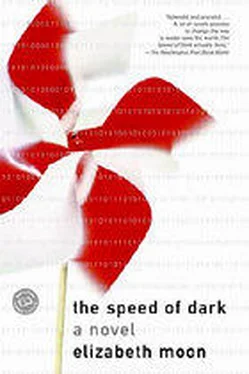I stop to sit on a rock and let my legs hang down. My parents took me to a park near where we lived when I was a child. It, too, had a stream with a waterfall, narrower than this one. The rock there was darker, and most of the rocks that stuck out were narrow and pointed on top. But there was one that had fallen over so the flatter side was on top, and I used to stand or sit on that rock. It felt friendly, because it did not do anything. My parents didn’t understand that.
If someone told the last maples that they could change and live happily in the warmer climate, would they choose to do it? What if it meant losing their translucent leaves that turn such beautiful colors every year?
I draw in a deep breath and smell the wet leaves, the moss on the rock, the lichens, the rock itself, the soil… Some of the articles said autistic persons are too sensitive to smells, but no one minds that in a dog or cat.
I listen to the little noises of the woods, the tiny noises even today, with the wet leaves mostly flat and silent on the ground. A few still hang and twirl a little in the wind, tip-tapping on a nearby twig. The squirrel’s feet, as it bounds away, scritch on the bark as it catches and releases its footholds. Wings whirr, and then I hear a thin zzeeet-zzzeeet from a bird I never actually see. Some articles say that autistic persons are too sensitive to small sounds, but no one minds that in animals.
No one who minds is here. I have today to enjoy my excessive and unregulated senses, in case they are gone by this time next week. I hope I will enjoy whatever senses I have then.
I lean over and taste the stone, the moss, the lichen, touching my tongue to them and then, sliding off the stone, to the wet leaves at its base. The bark of an oak (bitter, astringent), the bark of a poplar (tasteless at first, then faintly sweet). I fling my arms out, whirl in the path, my feet crunching now the crushed stone (no one to notice and be upset, no one to reprimand me, no one to shake a cautionary head). The colors whirl around me with my whirling; when I stop they do not stop at first, but only gradually.
Down and down — I find a fern to touch with my tongue, only one frond still green. It has no flavor. The bark of other trees, most I do not know but I can tell they are different by their patterns. Each has a slightly different, indescribable flavor, a slightly different smell, a different pattern of bark that is rougher or smoother under my fingers. The waterfall noise, at first a soft roar, dissolves into its many component sounds: boom of the main fall hitting the rocks below, the echoes of that blur that boom into a roar, the trickles and splatters of spray, of the little falls, the quiet drip of individual drops off the frost-seared fern fronds.
I watch the water falling, trying to see each part of it, the apparent masses that flow smoothly to the lip and then come apart on the way down… What would a drop feel as it slid over that last rock, as it fell into nothingness? Water has no mind, water cannot think, but people — normal people — do write about raging rivers and angry floodwaters as if they did not believe in that inability.
A swirl of wind brings spray to my face; some drops defied gravity and rose on the wind, but not to return to where they were.
I almost think about the decision, about the unknown, about not being able to go back, but I do not want to think today. I want to feel everything I can feel and have that to remember, if I have memories in that unknown future. I concentrate on the water, seeing its pattern, the order in chaos and chaos in order.
Monday. Nine twenty-nine. I am in the clinical research facility on the far side of the campus from Section A. I am sitting in a row of chairs between Dale and Bailey.
The chairs are pale-gray plastic with blue and green and pink tweedy cushions on the back and seat. Across the room is another row of chairs; I can see the subtle humps and hollows where people have sat on those chairs. The walls have a stripy textured covering in two shades of gray below a pale-gray rail and an off-white pebbly covering above that. Even though the bottom pattern is in stripes, the texture is the same pebbly feel as the one above. Across the room there are two pictures on the wall, one a landscape with a hill in the distance and green fields nearby and the other one of a bunch of red poppies in a copper jug. At the end of the room is a door. I do not know what is beyond the door. I do not know if that is the door we will go through. In front of us is a low coffee table with two neat stacks of personal viewers and a box of disks labeled: “Patient Information: Understand Your Project.” The label on the disk I can see reads: “Understanding Your Stomach.”
My stomach is a cold lump inside a vast hollow space. My skin feels as if someone had pulled it too tight. I have not looked to see if there is a disk labeled: “Understanding Your Brain.” I do not want to read it if there is one.
When I try to imagine the future — the rest of this day, tomorrow, next week, the rest of my life — it is like looking into the pupil of my eye, and only the black looks back at me. The dark that is there already when the light speeds in, unknown and unknowable until the light arrives.
Not knowing arrives before knowing; the future arrives before the present. From this moment, past and future are the same in different directions, but I am going that way and not this way.
When I get there, the speed of light and the speed of dark will be the same.
Light. Dark. Light. Dark. Light and dark. Edge of light on dark. Movement. Noise. Noise again. Movement. Cold and warm and hot and light and dark and rough and smooth, cold, TOO COLD and PAIN and warm and dark and no pain. Light again. Movement. Noise and louder noise and TOO LOUD COW MOOING. Movement, shapes against the light, sting, warm back to dark.
Light is day. Dark is night. Day is get up now it is time to get up. Night is lie down be quiet sleep.
Get up now, sit up, hold out arms. Cold air. Warm touch. Get up now, stand up. Cold on feet. Come on now walk. Walk to place is shiny is cold smells scary. Place for making wet or dirty, place for making clean. Hold out arms, feel sliding on skin. Sliding on legs. Cold air all over. Get in shower, hold on rail. Rail cold. Scary noise, scary noise. Don’t be silly. Stand still. Things hitting, many things hitting, wet sliding, too cold then warm then too hot. All right, it’s all right. Not all right. Yes, yes, stand still. Slurpy feeling, sliding all over. Clean. Now clean. More wet. Time come out, stand. Rubbing all over, skin warm now. Put on clothes. Put on pants, put on shirt, put on slippers. Time to walk. Hold this. Walk.
Place to eat. Bowl. Food in bowl. Pick up spoon. Spoon in food. Spoon in mouth. No, hold spoon right. Food all gone. Food fall. Hold still. Try again. Try again. Try again. Spoon in mouth, food in mouth. Food taste bad. Wet on chin. No, don’t spit out. Try again. Try again. Try again.
Shapes moving people. People alive. Shapes not moving not alive. Walking, shapes change. Not alive shapes change little. Alive shapes change a lot. People shapes have blank place at top. People say put on clothes, put on clothes, get good. Good is sweet. Good is warm. Good is shiny pretty. Good is smile, is name for face pieces move this way. Good is happy voice, is name for sound like this. Sound like this is name talking. Talking tells what to do. People laugh, is best sound. Good for you, good for you. Good food is good for you. Clothes is good for you. Talking is good for you.
People more than one. People is names. Use names is good for you, happy voice, shiny pretty, even sweet. One is Jim, good morning time to get up and get dressed. Jim is dark face, shiny on top head, warm hands, loud talking. More than one two is Sally, now here’s breakfast you can do it isn’t it good? Sally is pale face, white hair on top head, not loud talking. Amber is pale face, dark hair on top head, not loud as Jim louder than Sally.
Читать дальше












